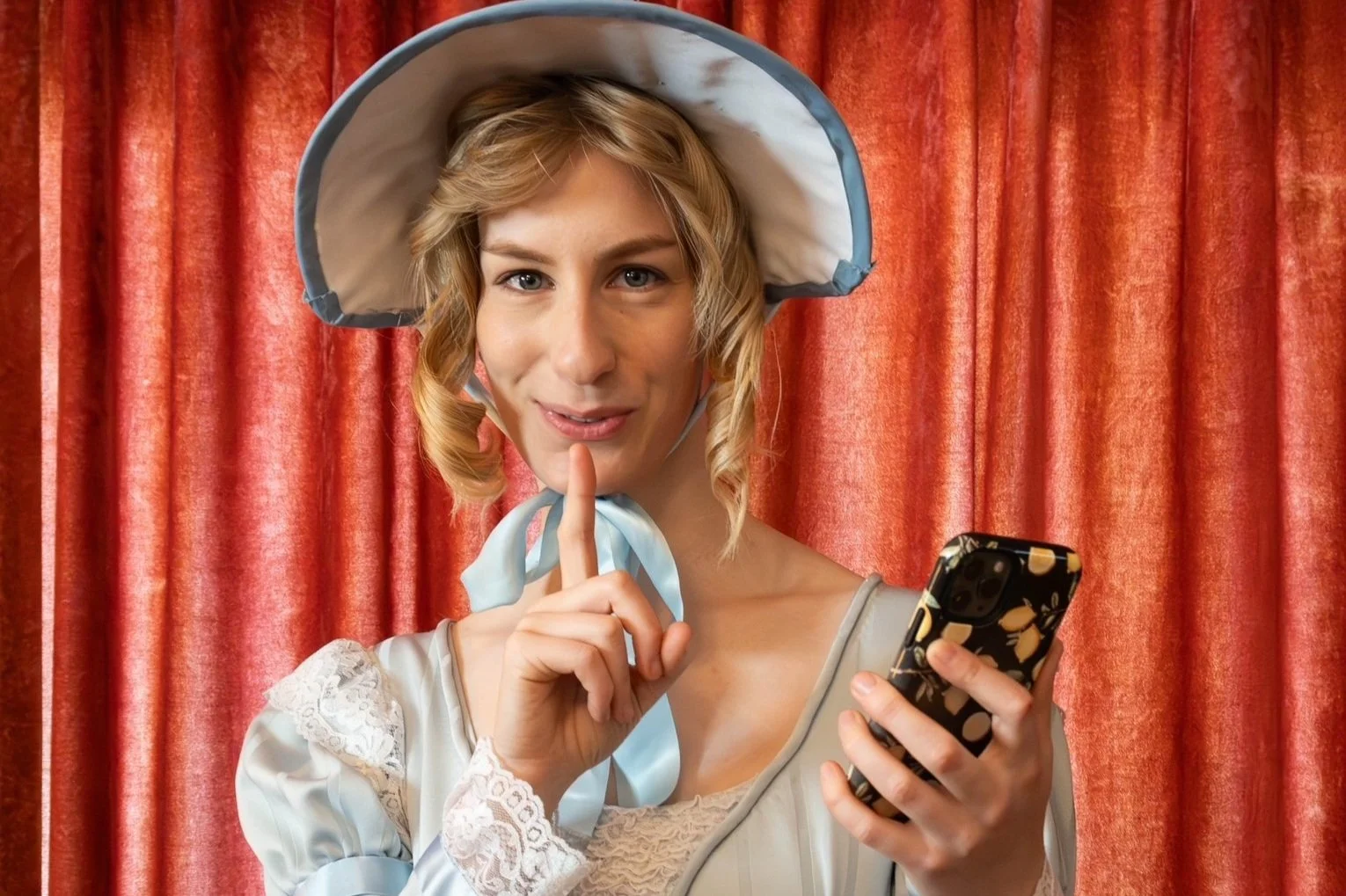Theatre review: Mary's Wedding sets wartime love story in evocative world of dream and memory
Actors, sets, and lighting conjure an atmospheric and affecting look at how people can have an impact on us
Sarah Roa and Tanner Zerr in Mary’s Wedding. Photo by Jon Benjamin.
Mary’s Wedding is at the Firehall Arts Centre until March 13
HOW OFTEN have we lived through moments without grasping their significance until later, when we reflect on their quotidian beauty with longing?
As a natural therapeutic for the weary, dreams give way to meditative excursions in the mind that can soothe troubled souls. In Stephen Massicotte’s play Mary’s Wedding, memory and dream combine to tell the story of two lovers caught in events beyond their control, striving to hold onto a burgeoning romance as their world is plunged into war.
One stormy day, taking shelter from a downpour in a barn in rural Canada, Mary Chalmers (Sarah Roa), a recent immigrant from England, meets Charlie Edwards (Tanner Zerr), a farm boy with a talent for horseback riding. From this singular encounter, the two begin to see each other and dream of a summer wedding. As the First World War unfolds, the narrative, which takes place inside a dream, flits between the domestic sweetness of Mary and Charlie’s budding romance and the raging chaos of foreign warfare, where Charlie is deployed as a trooper in Lord Strathcona’s Horse Regiment. Existing in a realm where psyche kneads and warps factual encounters, time seems immaterial as events fall out of chronology and imagined confessions can flow freely.
A rumination on the impact that people can have on us, Massicotte’s play speaks genuinely to the intense introspection that occurs after unforgettable events transpire. Within the framework of a dream, time grows porous and widens. In actuality, Mary and Charlie spent a relatively short time together, but in her boundless imagination, their bonding transcends this truth. In imbuing the play with a rueful disquiet, Massicotte reveals the value of being present, of appreciating our connections. In wartime, this theme repeats in Charlie’s friendship with his sergeant, Gordon Muriel Flowerdew (also played by Roa), whose jovial presence he counts on can just as suddenly dissipate—a rapport disrupted by carnage.
Director Donna Spencer successfully shapes the amorphousness of a dream on stage with the aid of set and lighting designer Lauchlin Johnston, covering the floor with a speckled canvas that can suggest skies, the sea, or bloodshed with its painted tufts of white, blue and red.
Within that set, actors Roa and Zerr fully use their physicality to create the illusions of horse riding, trench warfare, and incessant rainfall, on raised steps and wooden trestles. Zerr is an adroit physical performer, embodying equestrian prowess and trench heroics with ease, while Roa has the range for the duality of Mary and Flowerdew, flipping between the two convincingly, although at times her vocal intensity can overwhelm the small space’s acoustics. (Roa and Zerr alternate the roles with Emma Ross and Jacob Leonard.)
Johnston’s expressive lighting, with splashes of crimson and canary yellow suggesting bloodshed and gas, and sound designer Riley Hardwick’s aural landscapes of artillery action and relentless storms mesh well to complement the actors’ theatrical illusions.
With the poetry of an assured author, Massicotte has written a play that observes hope through a faceted perspective, one at once rejuvenating and melancholic. Even as its ending reminds us of the irretrievability of times past, there is an optimistic message as well—the present bears a gift of opportunity, to express gratitude for those around us.














